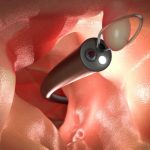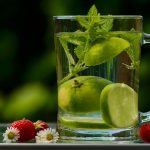By David Blyweiss, M.D., Advanced Natural Wellness
- Best-kept natural medicine secrets to cleanse your colon
- How to make the most of your colonoscopy experience
- An often-overlooked consideration
There are few tests that make patients roll their eyes and groan as much as the mention of the dreaded colonoscopy. We’ve all heard the horror stories.
How painful it can be to clear the colon with doctor-prescribed, foul-tasting laxatives. How disappointing it is to think you’re ready, only to find out mid-procedure that you’re not clear enough… and you have to reschedule.
At your expense. Because your insurance doesn’t cover do-overs.
Seriously, I’ve heard it all. And I can completely empathize with the complaints. It’s not exactly my favorite procedure either, personally. But here’s the thing…
If you don’t go in to the test fully prepped – meaning with a clear colon – you might as well not go at all.
Of course, that is NOT my recommendation. In fact, I’m writing to you today because half the population avoids getting a colonoscopy… which is a bad idea. Colon cancer is one of the more preventable and treatable cancers if it is detected… and one of the most deadly if it isn’t.
Which makes a routine colonoscopy one of those lousy medical procedures that actually makes sense.
Unfortunately, the prep for it is so unpleasant, many people put it off… indefinitely. Today I’d like to share a few tips with you for an easier, more natural prep that might make it a little easier to make that appointment – and go through with it!
As you may know, the standard prep for a colonoscopy includes drinking a gallon of bad tasting laxative, spending the day and night doubled over in pain in the bathroom while your digestive system empties out.
And then… you still have the procedure itself to look forward to.
But there are a few more natural, less painful approaches to clearing out your system you might want to try instead:
Magnesium Citrate: You can get this over-the-counter, and it is often used for natural colon cleanses. You’ll need 2-3 bottles. Eat lightly the day before, sticking with soft foods, and then once you begin drinking the magnesium citrate, stick with clear liquids.
Vitamin C: You know you’ve reached the upper limit of Vitamin C when your bowels begin to move. Which means that intentionally taking high doses of vitamin C will give you the desired colon-cleansing effect you are looking for as well. Magnesium citrate is faster and more reliable. But incorporating vitamin C is not a bad idea to move things along naturally.
Fast Longer: A slightly longer, gentler fast might be better than the fast and painful type most people experience. You might try eating lightly for a day, followed by two days of clear liquids. By the time you add the magnesium citrate and/or vitamin C, half of the job is already done.
Stay Hydrated: If you pick the magnesium citrate route, drinking plenty of liquids is critical, as it pulls water from your system and into your bowels to hasten the evacuation. Drink healthy clear liquids instead of the sugary Gatorade and salty chicken bullion most doctors recommend. Choose coconut water, homemade chicken broth, and juices mixed with seltzer. And stay away from anything with red or purple dye as it can interfere with your colonoscopy.
Using natural, alternative methods doesn’t mean you will avoid diarrhea. And depending on how full your system is, you may still be uncomfortable. But many people find they have less cramping and gas with this method.
Another note, however…
Keep track of your bowel movements through the process. You need to get to a point where what is coming out is nearly as clear as what’s going in. If that’s not the case, leave yourself enough time to go ahead and take the prescription cleanse your doctor prescribed. You may, however, be able to take less, once you’ve used natural methods first.
Also, don’t forget to let your doctor know what supplements you take. Those that could have a slight constipating effect, or that might prevent blood clotting, should be avoided the week prior to your procedure.
If you’ve been considering making changes to your diet, your post-colonoscopy diet might be the best opportunity to do so…
Once your system is cleaned out, and your procedure is done, you have a unique window of opportunity.
Are there changes to your diet you’ve been considering? Possibly eliminating dairy or wheat. Less sugar?
You will want to start back into food slowly, and choose wisely. Your entire digestive system is a blank canvas now. You get to start fresh. Gradually add foods back in, and consider NOT adding back the foods that aren’t as healthy for you. Foods you’ve wanted to cut out anyway. You’ve already got a head start.
If you can keep up with these changes for a couple of weeks, you’ll notice that your tastes will change. You won’t crave the sweets or the wheat as much. Vegetables and fruits – and less-processed foods – will taste better than before. And you will be more likely to stick with the changes.
Also, if you don’t already take probiotics, start after your colonoscopy. You can re-populate your gut with friendly bacteria while you are easing back into eating.
Last but not least, choose a provider who performs lots of colonoscopies. These are considered routine tests, and general practitioners can perform them, and they can be done in an office, rather than in the hospital. However, statistics show that working with someone who specializes in colonoscopies, and having it done in a hospital environment in case anything goes wrong, is the recipe for a better outcome.



